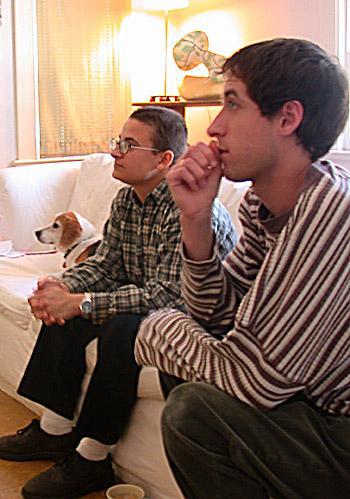A group of students serving as panelists in Spectrum Alliance’s classroom education program attended Saturday the Students Enlightening Residents Via Education retreat.
Spectrum Alliance, the organization for lesbian, gay, bisexual, transgender, questioning, non-identified and supporting students, offers panel discussions for professors or resident assistants interested in educating students about sexual identity issues.
George Juge, a psychology senior and retreat participant, said the reason the issue comes up so often is because the University as a whole is so conservative.
Spectrum’s panel discussions feature a diverse group of five or six knowledgeable students and acts as an informal educational tool in classrooms and dormitories. The retreat prepared those students to be panelists.
“The retreat teaches you how to put on your own program,” said Dennis Willson, SERVE coordinator. “Once you’ve gone through a SERVE retreat, you’re capable on a panel discussion about queer issues.”
Willson said the word “queer” is an offensive word to some people, but he uses the word as an umbrella term to describe all things non-heterosexual.
Saturday’s retreat, held in the Helen M. Carter House, focused on correct use of language and terminology.
For example, LGBTQN students prefer the term “non-heterosexual” rather than “homosexual” because until 1973, the American Psychological Association listed the word “homosexual” as a mental illness, and it still has negative connotations.
Retreat participants learned how to conduct panel discussions about Spectrum and Safe Space, a program that educates faculty and staff about how to support LGBTQN students. They prepared an identity exercise and a question-and-answer session.
The point of the identity exercise is get people thinking about what queer students have to go through, Willson said.
He also said the question-and-answer sessions are good ways to facilitate discussion and educate people at the same time.
Willson also set aside time during the retreat to discuss “queerdom and religion,” because panel members always are confronted by those questions in classrooms.
“People could talk all day about it,” Willson said.
The retreat stated Spectrum’s stance that all religions, including Christianity, promote tolerance and non-hate in some form.
Patrick Hollis, Safe Space coordinator, said some people do not believe the Bible condemns queer issues.
“Even in the Christian community, there are liberal interpretations of the Bible,” Hollis said.
Professors and organizations can contact the SERVE panelists through Spectrum Alliance.
Spectrum trains members to educate students
February 3, 2003

Spectrum trains members to educate students



